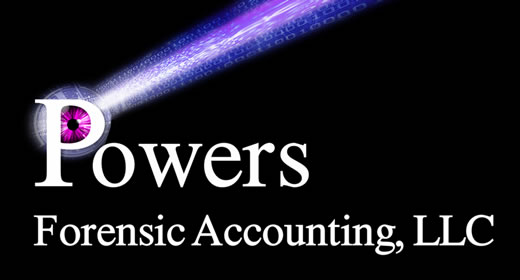Proper Accounting in Trusts & Estates
By Chrissie A. Powers, CPA/CFF, CFE, CVA
How many times have you sat across the table from an individual that was named as a fiduciary in a legal document and they aren't experienced in this role? Family members who are named as fiduciaries aren't always informed of the best accounting practices when fulfilling this role. What can the fiduciary do to put their best foot forward and deter concerns of improprieties by the beneficiaries?
Prepare an Asset List or Inventory List. A beginning list of all trust assets at grantor's date of death for trusts can be very helpful for the beneficiaries. Some family members may find it helpful to also include date of death values for each trust asset. This would be similar to the Inventory List prepared in an Estate matter.
Minimize the number of accounts open. Upon the death of the grantor or descendant, the fiduciary should consider consolidating the various accounts, keeping in mind the FDIC insurance limits and making sure not to incur any unnecessary tax implications. For investment account consolidations, it is possible to transfer the stock between brokerage accounts without selling and creating tax implications. Minimizing the open accounts will reduce headaches with the accounting and make managing the assets more efficient.
Don't comingle funds. Keep the monies belonging to the trust and/or estate in their own separate trust and/or estate accounts. Don't transfer funds into the fiduciary's personal account. Be sure to leave a clean, clear trail of the funds moving between the Trust or Estate accounts. This will reduce accusations of improprieties.
Keep documentation for all expenditures of the Trust and/or Estate. This will reduce the beneficiaries disputing where the monies went and if everything was properly accounted for.
Keep immaculate accounting records for the Trust and/or Estate. Be sure to keep bank statements, investment account statements, receipts, invoices and tax returns.
Prepare and distribute accounting reports. While normally not required for trusts, an accounting report can be helpful for family members to know where the money is going and be transparent about income and expenditures. We suggest accounting reports being prepared annually at a minimum. The accounting report will lay out where the money was spent and reduce the concerns of personal use or diverted assets. In an Estate matter, accounting reports are generally required.
If you have clients that need disbursements traced, inventories or accountings reviewed, reconstruction of their accounts or transactions, or discrepancies identified, we can help. Powers Forensic Accounting can be reached at 614-745-5192 to discuss your additional questions or concerns regarding Trust or Estate accounting.
The material in this article is for informational use only, and is in no way intended to constitute legal advice. You should seek the advice of an attorney.

Chrissie A. Powers, CPA/CFF, CFE, CVA
© 2026 Powers Forensic Accounting, LLC All Rights Reserved.
Website by Lemon Dog Project
